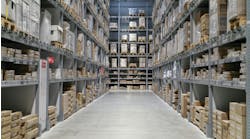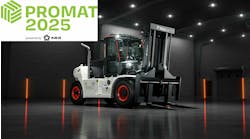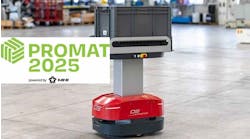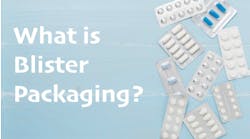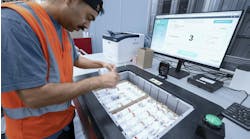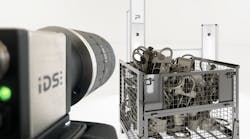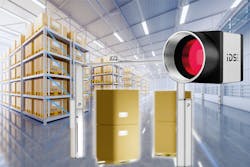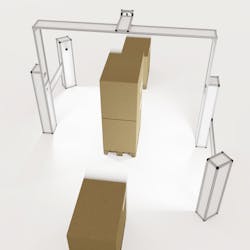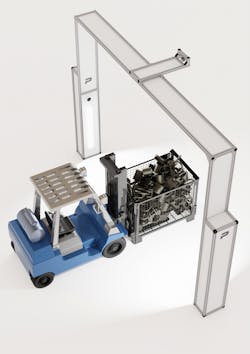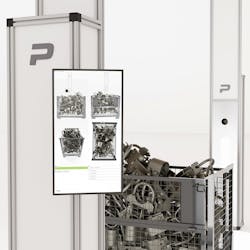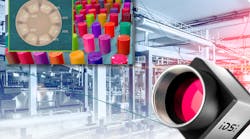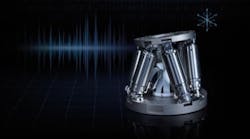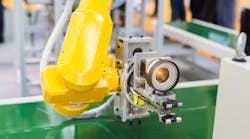Latest from Material Handling & Packaging
Drive Through Control
Due to digitalization in Industry 4.0, internal logistics is subject to constant change. Internal traceability, which is the tracking of goods in the warehouse or production facility, is increasingly playing a key role. Manufacturers and consumers are placing more and more emphasis on the safety and quality of products. Costly and image-damaging complaints must therefore be avoided.
Automation systems can help to optimize goods control here and at the same time facilitate and accelerate the work of the operators—saving time and costs.
An example of the successful implementation of a system for internal traceability in intralogistics can be found at Schnellecke Logistics.
At the Dingolfing site in Germany, a scalable quality assurance solution from Pose Automation GmbH in Kleve ensures comprehensive photo documentation for incoming and outgoing goods inspection.
The P.Portal used in a logistics hall takes over the analysis and documentation of the condition of the goods and uses bright USB3 Vision industrial cameras from IDS.
Application
The P.Portal is used at Schnellecke to inspect containers with components. For the purpose of documentation and proof in the event of complaints, the filled containers must be photographed.
Up to now, employees with digital cameras have taken over this part manually—now four cameras from the uEye CP family each take photos of the corresponding containers.
Thanks to a trigger sensor, this happens with repeated accuracy and completely automatically. The PC-based multi-camera system displays and simultaneously stores the image data.
The cameras are mounted on a bridge-like construction under which the containers to be documented are passed. Triggered by a distance sensor, these containers are automatically photographed from 4 sides (front/rear/left/right) as they pass through.
In principle, the camera positions are freely selectable, in this case, they are to the left and right of the portal.
Two lateral extensions of the portal ensure that all pictures can be taken at the same time. The optional Smart Light module enables intelligent light control for the image capture process, actively saving energy costs.
"The system meets all our requirements," emphasizes Anne Hofbauer, Lean Manager at Schnellecke Logistics. "It is also stable in continuous use."
The image processing components solve their task perfectly: Passing trams and their wagons are automatically photographed individually in high resolution.
Order and processing numbers are documented and thus enable complete traceability. Even high train speeds are photographed perfectly with a short exposure time of 1 millisecond.
"The sensitive cameras thus capture the image material without motion blur and guarantee us complete traceability, as the images are of the same quality throughout and all the required sides of the containers are photographed," confirms Anne Hofbauer.
For Sebastian Pose, Managing Director of Pose Automation, important selection criteria for the camera to equip the system were therefore resolution, speed, and light sensitivity.
In this standardized application, the model U3-3890CP is used. This USB3 vision camera integrated for Schnellecke is predestined for tasks that require a perfect result even with very short exposure times.
It features a high-resolution 12.00 MPixel sensor from the Sony STARVIS range, which boasts exceptional light sensitivity and low noise thanks to the sensor's BSI ("back-side illumination") technology.
The uEye+ camera also works with extensive pixel pre-processing and has an internal 120 MB image memory for buffering image sequences - a good choice for multi-camera systems such as the P.Portal.
"Basically, the traceability solution P.Portal is designed for the flexible use of different IDS camera models. This enables us to offer our customers a wide range of economic applications. All in all, IDS cameras are characterized by their robustness and particularly easy integration into our systems. The integration is done with the help of the convenient IDS peak software development kit," explains Sebastian Pose.
Software
With the help of software developed by Pose Automation, the images are stored in the client's system with date and time in real-time. "What was important to us in the development of the software as well as the overall system was the high degree of automation of the photography process.
In addition, P.Portal offers face pixelation with deep-learning technology and is thus DGSVO-compliant," Sebastian Pose explains. In addition, modular extensions are possible, such as the "Smart Light" green technology used here, with which uniform lighting for a passageway switches on and off automatically. Further modules, such as "Code Reading", "Booking Live", "Smart Recording" complete the offer.
The advantages of the system are obvious:
- Clarity in the event of a complaint: the photographic material can be used to quickly and easily determine whether the damage was already present at the time of handover. This saves time and unnecessary expenses.
- Complete documentation: The P.Portal photographs the condition upon handover. The logistics process is recorded seamlessly by the cameras.
- Product and order traceability: Optionally, packaging labels with bar, DMC, and QR codes can be automatically read and linked—even with the customer's own booking system.
- Time neutral: The entire photography process does not take any additional time
"The automation of the photo process makes the process flow time-efficient and leads to a reduction in the workload of the employees, as well as ensuring the process with regard to complete documentation," points out Anne Hofbauer, Lean Manager at Schnellecke Logistics.
Outlook
The quality of products must be right—always and everywhere. The scalable quality assurance solution P.Portal analyzes and documents the condition of goods and products—not only during incoming or outgoing goods inspection but also during ongoing production. There is potential everywhere where intralogistics processes can be automated with the help of image processing.
Using the right solution helps companies—regardless of the industry—to further develop their processes and improve their own results.
